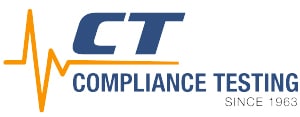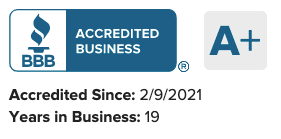Get Free Help From Our Engineers With EMC Testing & Compliance
Need help complying with EMC standards? We work with businesses and individuals across the country, including in Wisconsin, to achieve compliance with FCC Part 15 and other EMC regulations.
Click the “Talk to Our Team” button or call us on 866-540-5287 to ask our engineers your question about EMC testing and compliance, or request a free quote for testing and achieving compliance and equipment authorization for your device.

Electromagnetic compatibility (EMC) testing is a key part of the process of bringing your device to market. It’s a legal requirement in many of the world’s biggest markets, including the US and European Union, making it critical for marketing your electronic device.
EMC testing involves testing your device to ensure it’s capable of functioning properly close to other electronic devices and equipment. It’s performed by EMC testing labs, and it’s part of the process of achieving regulatory compliance and market access for your product.
Testing your device for electromagnetic compatibility is mandatory in most countries. However, the standards for EMC can differ slightly from one country to another, making it vital to have a clear plan in mind before you start testing your device.
Below, we’ve explained more about what EMC testing is, what devices require EMC testing to gain market access, and common EMC standards and regulations that are used in the United States and other countries.
To request a quote for EMC testing for your device, or to ask our testing and compliance team any questions you have about the electronic device testing process, contact us via email or call us at 866-540-5287.
What is EMC Testing?
EMC testing is a procedure that’s conducted to evaluate the electromagnetic compatibility of an electronic device. It measures two key aspects. The first of these is a device’s ability to function normally when it’s exposed to electromagnetic interference (EMI) from other devices.
The second is the level of electromagnetic interference that’s emitted from a device, which can potentially interfere with the functioning of other devices.
Put more simply, EMC testing verifies that a device operates within approved limits, meaning it can operate alongside other devices without malfunctioning or causing other, nearby devices to malfunction. You can think of it as checking if a device is a “good neighbor” for other devices.
This testing process is essential, because electromagnetic interference can lead to damaged or malfunctioning devices, data corruption, and even equipment failure. Proper testing protects the electromagnetic spectrum, meaning devices can function safely and efficiently.
What Devices Require EMC Testing?
Almost all electronic devices need to undergo EMC testing, especially those that are designed for consumer, commercial, industrial or medical use.
This includes household appliances, computers, smartphones and tablets, medical equipment and devices, remote control devices, home security systems, industrial machinery, and certain components used in automotives and other vehicles.
Our full guide to products that require EMC testing goes into more detail about consumer and industrial devices that need EMC testing to enter the market.
Is EMC Testing Mandatory?
In almost all markets, EMC testing is mandatory before an electronic device can go on sale to the public. In the United States, FCC regulations such as Part 15 set requirements for devices and potential penalties, including fines and legal action, for non-compliance.
Simply put, if you manufacture an electronic device, it’s important to complete the testing and compliance process before entering the market.
Common EMC Standards & Regulations
FCC Part 15
In the United States, the Federal Communications Commission (FCC) regulates EMC through Part 15 of its rules. The FCC Part 15 rules apply to most electronic equipment sold in the USA, from small handheld devices to industrial equipment.
FCC Part 15 primarily focuses on electromagnetic emissions limits and immunity for intentional and unintentional radiators to ensure that devices can function in shared environments.
We offer FCC Part 15 testing services, allowing you to complete lab testing for your device and achieve compliance with the FCC’s EMC standards.
EU Radio Equipment Directive
The Radio Equipment Directive (RED) is a key regulation in the European Union, applying to all devices and equipment that use the radio spectrum. This directive includes standards for EMC, safety and efficient use of the radio spectrum.
Compliance with the RED is mandatory for manufacturers who wish to sell electronic devices in the European Union.
We offer RED testing, allowing you to achieve compliance with the RED and enter the European market with your device.
EU EMC Directive
The EU’s EMC Directive is specifically designed to limit electromagnetic emissions from devices and equipment. Similar to FCC Part 15, it ensures that devices don’t affect the normal operation of equipment, and vice-versa. It also addresses the immunity of devices to EMI.
Compliance with the EMC Directive is required for the CE marking for electronic devices, which indicates conformity with EU standards.
Other Relevant Standards
- IEC standards. The International Electrotechnical Commission (IEC) provides a range of international standards for EMC testing, which are widely adopted in many countries.
- EN standards. In Europe, EN standards (European Norm) specific to EMC have been adopted, harmonizing with international standards to ensure consistency across all EU member states.
- ISO standards. The International Organization for Standardization (ISO) also has its own standards related to EMC, particularly for automotive equipment and devices for industrial use.
Contact Us for EMC Testing Quotes & Information
EMC testing is indeed mandatory for a wide range of electronic devices. Adhering to the EMC standards set by the United States, European Union and other markets not only ensures your device is legally compliant — it also guarantees safety and reliability.
If you’re developing or importing an electronic device and need to ensure it complies with FCC Part 15, the EU Radio Equipment Directive, the EU EMC Directive, or other regulations, we’re here to help.
To request a quote or ask a question about the testing and compliance process, contact us online or call us at 866-540-5287 to talk to our team.
Request a Free Quote From Our Team
Please enter your name, contact information, and any information about your device and the type of testing you need into the form below. Our team of engineers and compliance specialists will contact you as soon as possible with a free quote for your project.




